Because of the strong magnetism of magnetite, the extraction of iron from magnetite is weak magnetic separation technology. The magnetite iron ore processing maninly includes:
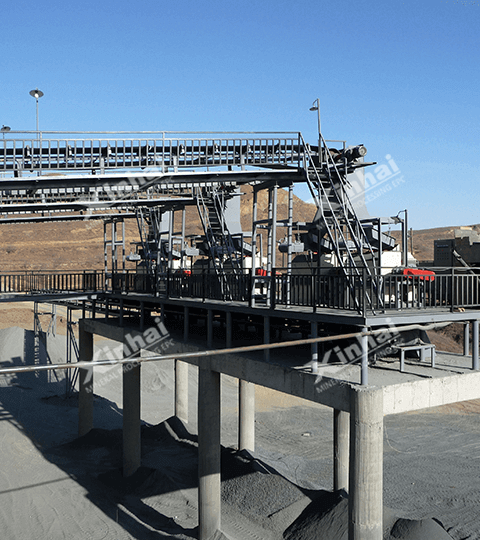
It is suitable for the extraction of iron from simple single magnetite. It can be divided into successive-grinding weak magnetic separation process and stage-grinding weak magnetic separation process. Successive-grinding weak magnetic separation process is suitable for extraction of iron from magnetite with coarse grain or high grade iron. Stage-grinding weak magnetic separation process is suitable for extraction of iron from low grade magnetite with fine grain.
Single Weak Magnetic Separation Process
It mainly points at the extraction of iron ores which are difficult to increase its fineness or with many SiO2 impurities. It includes weak magnetic-cation anti-flotation separation process and magnetic-positive anion flotation separation process.
Weak Magnetic - Flotation Separation Process
It is mainly dealing with the extraction of iron ores with multiple metals and complex iron ore.
Weak Magnetic - Strong Magnetic - Flotation Separation Process
Hematite is weak magnetic ore, which can be easier separation by flotation than magnetite. In the old days, hematite was separated by gravity separation, however it was weed out for unreachable capacity. Now Hematite iron ore processing is as follows:
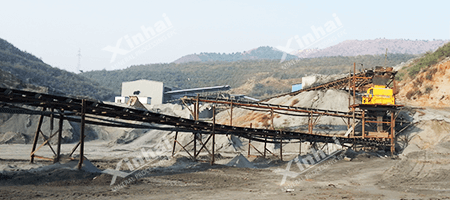
Commonly, weak magnetic separation can be added before strong magnetic separation to remove the strong magnetic ore or impurity in raw ore. Then strong magnetic separation is used to separating hematite, which is also the work flow of the mixture of magnetite and hematite.
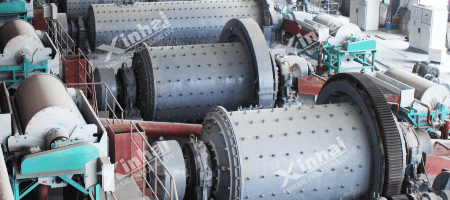
Hematite is easier to floated than magnetic, which could be separated by positive flotation. As the density of iron ore is much higher than that of gangue mineral, gangue mineral is more likely to attach to the foam than iron ore. Therefore, for the extraction of iron ore, reverse flotation is more advantageous than positive flotation. When the magnetite content mixed in hematite is higher, reverse flotation is a more convenient method for the extraction of iron ore.
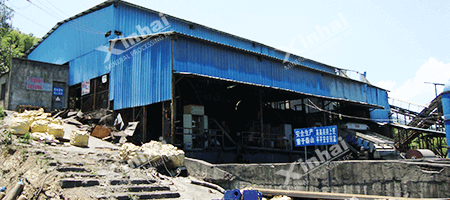
In the process of high intensity magnetic-flotation, a part of gangue mineral in the ore is firstly removed by high intensity magnetic separation, and then the coarse concentration of high intensity magnetic separation is sent to the flotation to obtain the final qualified concentrate.
Limonite is one of the main type of iron ores, but its iron content is lower than magnetite and hematite, and it is a secondary iron ore. At present, the industrial application of limonite iron ore processing includes:
The single separation process of lignite is mainly used for the lignite with high iron content and good selectivity, which can be divided into a single magnetic separation process and a single gravity separation process. The single gravity separation process is used to deal with the extraction of iron ore with coarser grain size, and the equipment is selected according to the grain size of the ore. Single magnetic separation process generally refers to a single strong magnetic separation process, this process has a strong adaptability to the ore, the concentrate is easy to concentrate and filter, but it is not suitable for fine grade slime.
The combined iron ore processing technology only used for limonite, includes magnetization - magnetic separation process, flotation - strong magnetic separation process, gravity separation - strong magnetic separation process, etc., which are used for the extraction of iron from limonite with relatively complex composition. The specific iron ore processing technology shall be determined after the mineral processing test has proved the ore properties.
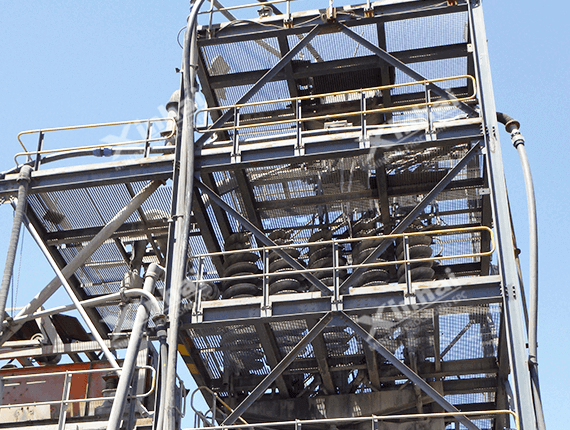
Like limonite, siderite is a low-grade iron ore that is unstable. The iron ore processing technology used in siderite concentrator are gravity separation and strong magnetic separation. Different siderite has different iron ore processing methods. The extraction of iron from single siderite with coarse grain size is suitable to be treated with single gravity separation, single strong magnetic separation and combined process including two kinds of iron ore processing technologies. For the extraction of iron from siderite with fine grain size, effective extraction of iron include roasting magnetic separation, strong magnetic separation, flotation or magnetic flotation combined process.
Siderite containing magnetite can be separated by a combined iron ore processing method of weak magnetic separation and gravity separation, strong magnetic separation, or flotation in series, or a more complex iron ore processing method.
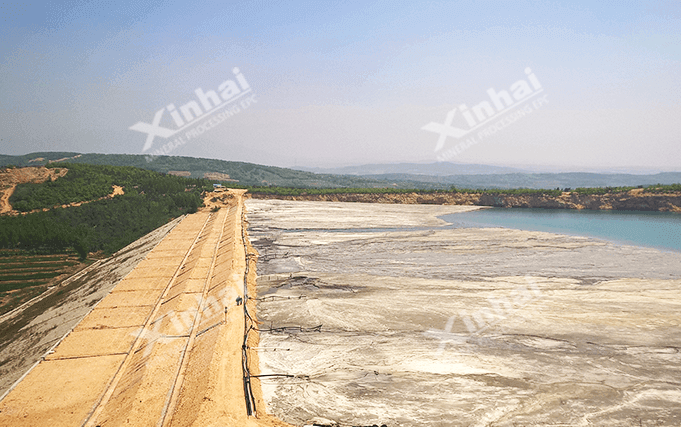
Iron ore processing capacity is huge, iron ore tailings account for about half of the total metal tailings, in recent years due to the increasing awareness of environmental protection and tailings accidents, whether from the perspective of comprehensive utilization of resources or from the perspective of environmental protection and safety, iron ore tailings treatment is a problem that needs attention.
To avoid resource waste and tailings accidents at the source, the main treatment methods of iron ore tailings at present are: tailings reprocessing, tailings dry stacking and full tailings consolidation and filling method.
Tailings Reprocessing: Effectively increasing product rate and recovery rate, comprehensive utilization of iron ore resources.
Tailings Dry Stacking: Reducing the cost of tailings pond and the risk of accidents and pollution.
Tailings Consolidation and Filling Method: Utilization of tailings, protecting terrain and environment.
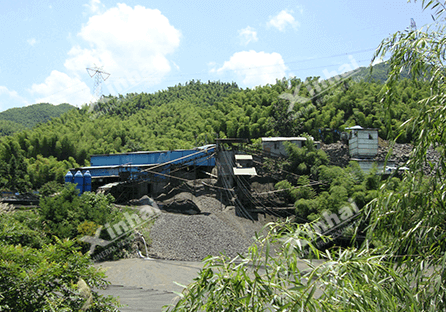
Stage grinding(2 stages) + stage separation(6 stages magnetic separation) + iron concentrate dewatering + tailings magnetic and gravity separation + grinding + flotation separation of sulfur and titanium.
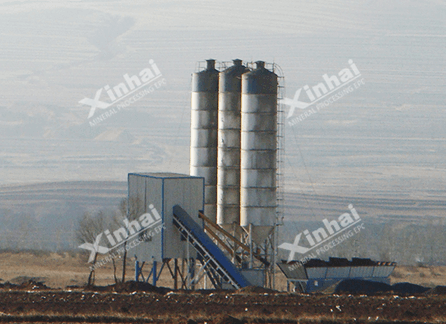
One stage grinding + two-block classification + close-circuit grinding + four-block magnetic separation + concentrate dewatering + tailings dewatering
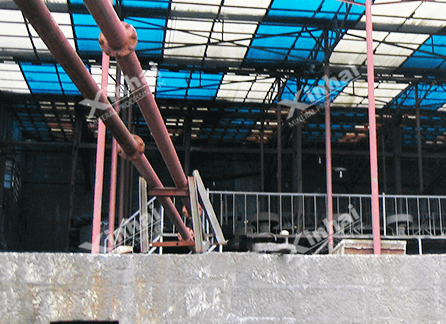
Strong magnetic separation: two-and-half-block close circuit crushing and screening + strong magnetic separation
Verse flotation: two-and-half-block close circuit crushing and screening + verse flotation
Weak magnetic separation: two-and-half-block close circuit crushing and screening + one stage pre-magnetic separation for tail tossing + one stage close circuit grinding + two-block weak magnetic separation
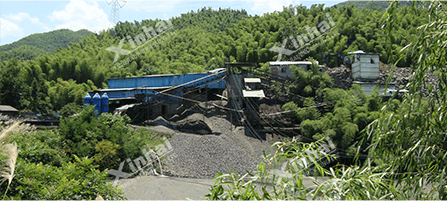
Anhui 600t/d Iron Magnetic Separation Project
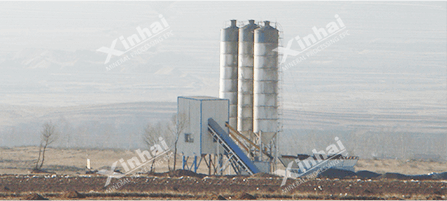
Inner Mongolia 2500t/d Iron Processing Project
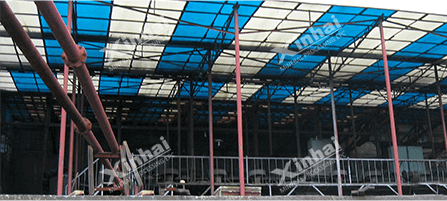
Yunnan 100TPD Iron Processing Plant Project
Xinhai Mining has set up a mine design institute and a mine research institute, with an experienced team of experts, and has applied for many patents (some invention patents are under examination and approval). The technical indexes of mineral processing are guaranteed.
Till now, Xinhai Mining has accomplished over 2000 mine design, research and equipment supplying projects. Among them, there are over 500 mineral processing EPC+M+O projects. Xinhai Mining has technologies and experiences for over 70 kinds of ores.
Pointed at different problem during mine construction, Xinhai Mining put forward mineral processing EPC+M+O service, supplying close-circuit service from mineral processing test and mine design, equipment manufacturing and purchasing, reaching standard and production, to mine management and operation.
Please leave your message here! We will send detail technical info and quotation to you!
